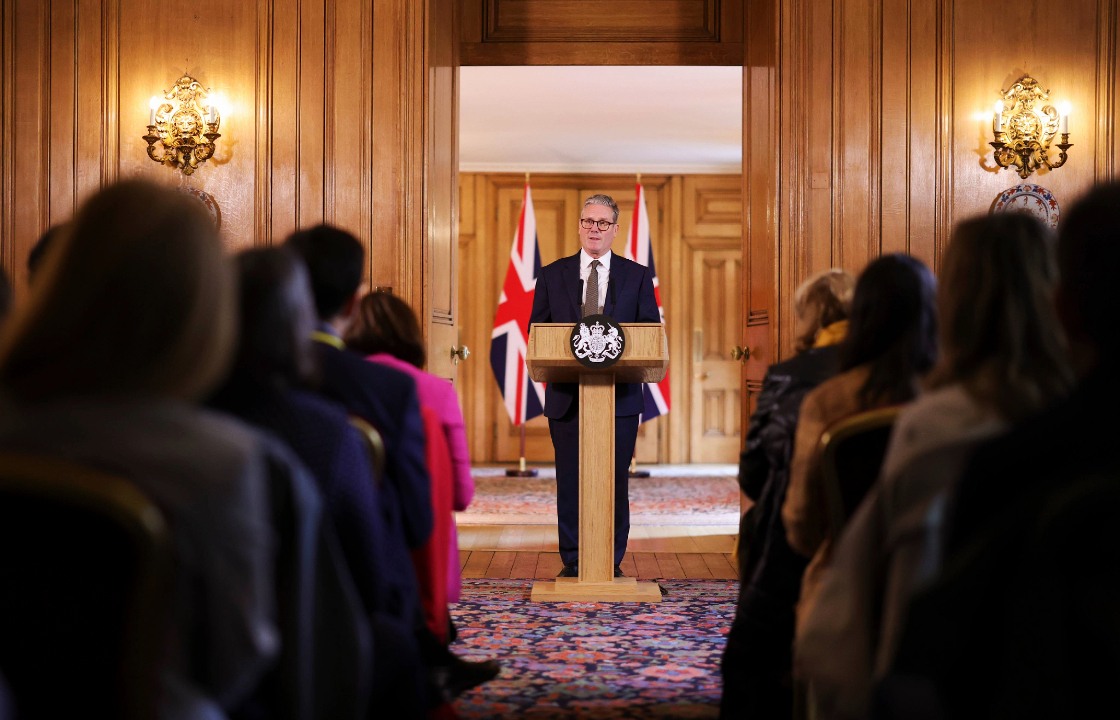The joke during the election campaign was that Keir Starmer’s luck was so good, there must be a genie working at Labour Party HQ.
Since his huge election victory, that luck hasn’t changed. In his first weeks in office, the new Prime Minister has been showered in congratulations from fellow world leaders at two international summits, and watched his beloved England football team make an unlikely run to the final of the Euros.
Polls show a big bump in Starmer’s personal popularity, and his new ministerial team has got to work on Labour’s priorities without any distractions.
That run of luck is why tonight’s votes in the Commons are being watched so closely – because it might be the first time things don’t go Labour’s way.
With debate on the King’s Speech coming to a close, MPs get the chance to put forward amendments before approving the government’s programme of legislation.
The outcome isn’t binding, but the votes are a sign of how much power rests in the hands of opposition parties and backbench MPs. They can embarrass party leaders who leave themselves exposed on tricky issues.
That’s what happened at the last King’s Speech vote, when the SNP put forward an amendment on an immediate ceasefire in Gaza, and provoked a huge Labour rebellion against the then leader of the opposition.
Today, things are very different. Keir Starmer is now Prime Minister, at the head of a historic Labour majority. The issue is different, too: MPs will be voting on a call to abolish the two-child cap on benefits.
Meanwhile the SNP, which has again led the push for a vote, joined by the Lib Dems, is a diminished force, with just nine Westminster MPs. Both parties will have their amendments voted on tonight.
Introduced in 2017 by the Conservative government, the cap prevents families from claiming universal credit or child tax credit for a third or subsequent child.
It affects an estimated 1.6 million children across the UK, and 87,000 in Scotland.
The Child Poverty Action Group estimates that abolishing the cap would lift a quarter of a million children out of poverty across the UK.
The cost to reverse the measure has been put at £3.4bn per year by the Institute for Fiscal Studies – that represents 3% of the total working-age benefits bill.
Labour went into the election promising tight discipline on the public finances, and Chancellor Rachel Reeves says the cap will only be lifted when the money is there to pay for it.
Scottish Labour leader Anas Sarwar has long called for the cap to go – but has stopped short of picking a fight with the UK party on the issue.
It’s something many Labour MPs feel passionately about – but another big rebellion isn’t on the cards tonight.
Just 18 Labour backbenchers signed their own amendment calling for an end to the cap, which won’t be voted on, and few others are expected to join them in the final vote tally.
Even if Starmer’s luck holds, and his party stays largely united tonight, that doesn’t mean this political problem goes away.
The Prime Minister has had to give ground ahead of the vote, setting up a child poverty task force that will examine the case for abolition of the cap.
Those around Keir Starmer who back the Prime Minister’s tough stance say giving ground on this will lead to other expensive demands.
And welfare spending is a controversial issue that cuts to the core of the coalition of voters Starmer put together at the election, winning Labour seats in areas of England that have rarely, if ever voted for the party before. Polling shows there’s a majority across the UK in favour of keeping the cap.
That said, concern within Labour at the party’s stance has grown to the point that it feels inevitable Reeves will eventually find the money; it seems hard to believe that Labour would go into the next Holyrood election in 2026 with this question still unresolved.
Follow STV News on WhatsApp
Scan the QR code on your mobile device for all the latest news from around the country





























